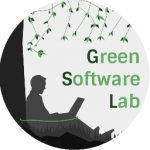An Economic Energy Approach For Queries On Data Centers – João Saraiva, Miguel Guimarães, Orlando Belo
Energy consumption is an issue that involves all of us, both as individuals and as members of a society, and covers all our areas of activity. It is something so broad that its impact has important reflections on our social, cultural and financial structures. The domain of software, and in particular database systems, is not an exception. Although it seems to be a little bit strange to study the energy consumption of just one query, when we consider the execution of a a few thousand queries per second, quickly we see the importance of the querying consumption in the monthly account of any company that has a conventional data center.
To demonstrate the energy consumption of queries in data centers, we idealized a small dashboard for monitoring and analyzing the sales of a company, and implemented all the queries needed for populating it and ensuring its operation. The queries were organized into two groups, oriented especially to two distinct database management systems: one relational (MySQL) and one non relational (Neo4J).
The goal is to evaluate the energy consumption of different types of queries, and at the same time compare it in terms of relational and non-relational database approaches. This paper relates the process we implemented to set up the energy consumption application scenario, measure the energy consumption of each query, and present our first preliminary results.
